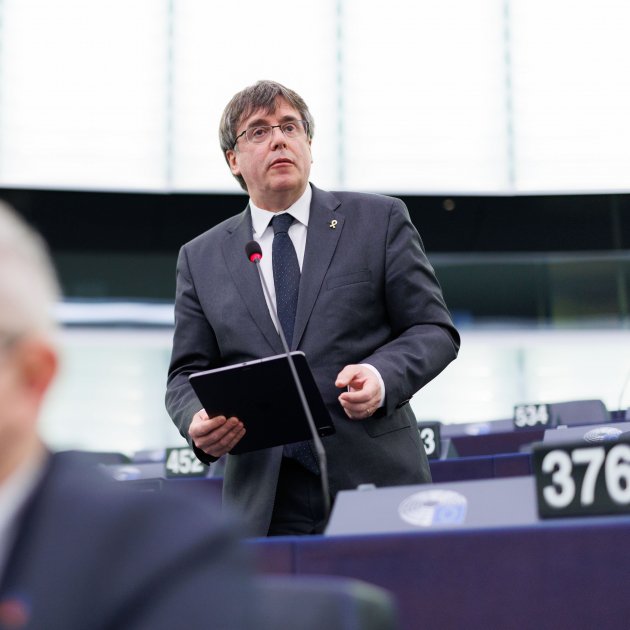The Catalan president in exile, Carles Puigdemont, showed himself to be outraged after the director of Spain's CNI intelligence agency, Paz Esteban, told the official secrets committee that they had been spying on people in his environment and his family, with the authorization of the Supreme Court. Puigdemont considers that the issue of judicial authorization does not make it any less scandalous and he recalled that most of the people around him are not involved in any court case, but have been spied on in order to attack him. He concluded that "Spain is a threat to democracy." "It is clear that Spain is rotten throughout. A pseudo-democracy that considers it legitimate to carry out complete espionage (including invading their privacy) for people who are pro-independent or who are simply part of my environment," he said.
According to Puigdemont, this type of action is a crime even if carried out with judicial permission, because it involves political persecution. "[The people in] my environment have been infected by Pegasus. This has been irrefutably proven. Only flat-earthers can deny it. If the CNI has used this software, it has committed a very serious crime. Most people around me are not part of any court case, and under no circumstances do they enter into any of the situations in which a state may limit fundamental rights. They have been spied on in order to be able to spy on me without appearing to breach my [parliamentary] immunity. But they have violated it. Spain is a threat to liberty; it allows itself to spy on my family and co-workers solely because it is irritated by my European freedom of action," he added.
Tweets by Carles Puigdemont
As Junts lawyer and MP Jaume Alonso Cuevillas has noted, part of the so-called "Puigdemont environmment" consists of his lawyers, and that if a judge has authorized spying on them, "it is very serious".
Spain's National Intelligence Centre (CNI) spied on the Catalan independence movement, but it did so with judicial authorization from the Supreme Court. According to parliamentary sources, this is the version given today by the director of the CNI, Paz Esteban, to the official secrets committee of the Spanish Congress. However, Esteban reduced the list to only eighteen pro-independence leaders and people in their circles, including current Catalan president Pere Aragonès and those close to the former president Carles Puigdemont in Belgium. These admissions are still far from the figure of over 60 people including Catalan and Basque politicians, activists, lawyers and journalists demonstrated to have had their phones infected with this software in the independent study by Citizen Lab. And there is another unknown in the air: who spied on Spanish prime minister Pedro Sanchez and defence minister Margarita Robles? The PSOE and the right came out of the meeting very satisfied; quite the opposite of the independence movement.
The closed-door appearance before the committee, which has not met for over two years, began at 9am and lasted more than three hours, with the presence of two people themselves spied on with Pegasus: the Catalan deputies Míriam Nogueras (Junts) and Albert Botran (the CUP). Prior to the meeting, committee members left their mobile phones in lockers and an electronic search was carried out to prevent recordings. Those present were only permitted to bring paper and pen. According to several of the spokespeople present at the official secrets committee, much of the appearance by the CNI head was focused squarely on the Catalangate espionage against the independence movement.
